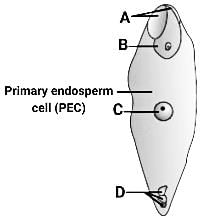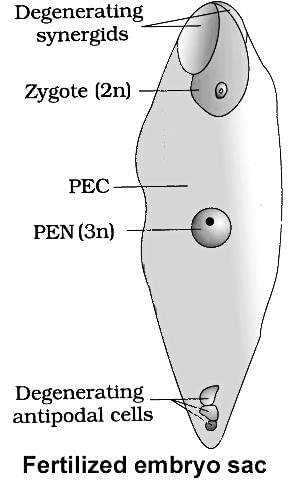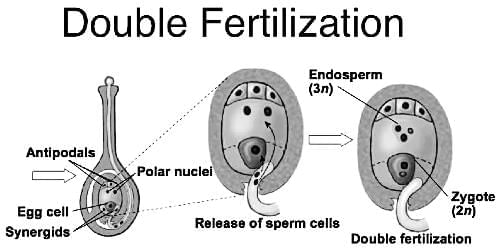NEET Exam > NEET Tests > Biology Class 12 > Test: Double Fertilisation - NEET MCQ
Test: Double Fertilisation - NEET MCQ
Test Description
5 Questions MCQ Test Biology Class 12 - Test: Double Fertilisation
Test: Double Fertilisation for NEET 2024 is part of Biology Class 12 preparation. The Test: Double Fertilisation questions and answers have been
prepared according to the NEET exam syllabus.The Test: Double Fertilisation MCQs are made for NEET 2024 Exam. Find important
definitions, questions, notes, meanings, examples, exercises, MCQs and online tests for Test: Double Fertilisation below.
Solutions of Test: Double Fertilisation questions in English are available as part of our Biology Class 12 for NEET & Test: Double Fertilisation solutions in
Hindi for Biology Class 12 course. Download more important topics, notes, lectures and mock
test series for NEET Exam by signing up for free. Attempt Test: Double Fertilisation | 5 questions in 5 minutes | Mock test for NEET preparation | Free important questions MCQ to study Biology Class 12 for NEET Exam | Download free PDF with solutions
Test: Double Fertilisation - Question 1
Fusion of a male gamete with an egg in the embryo sac is called______.
Detailed Solution for Test: Double Fertilisation - Question 1
Test: Double Fertilisation - Question 2
What is the central cell called after triple fusion in double fertilisation?
Detailed Solution for Test: Double Fertilisation - Question 2
| 1 Crore+ students have signed up on EduRev. Have you? Download the App |
Test: Double Fertilisation - Question 3
The diagram shows a fertilised embryo sac where

Statement I:A is diploid and B is triploid
Statement II:C are degenerating antipodal cells and D are degenerating synergids

Statement I:A is diploid and B is triploid
Statement II:C are degenerating antipodal cells and D are degenerating synergids
Detailed Solution for Test: Double Fertilisation - Question 3
Detailed Solution for Test: Double Fertilisation - Question 4
Test: Double Fertilisation - Question 5
In the process of double fertilisation in flowering plants, which of the following statements correctly explains the sequence of events?
Detailed Solution for Test: Double Fertilisation - Question 5
|
78 videos|276 docs|174 tests
|
Information about Test: Double Fertilisation Page
In this test you can find the Exam questions for Test: Double Fertilisation solved & explained in the simplest way possible.
Besides giving Questions and answers for Test: Double Fertilisation , EduRev gives you an ample number of Online tests for practice



















